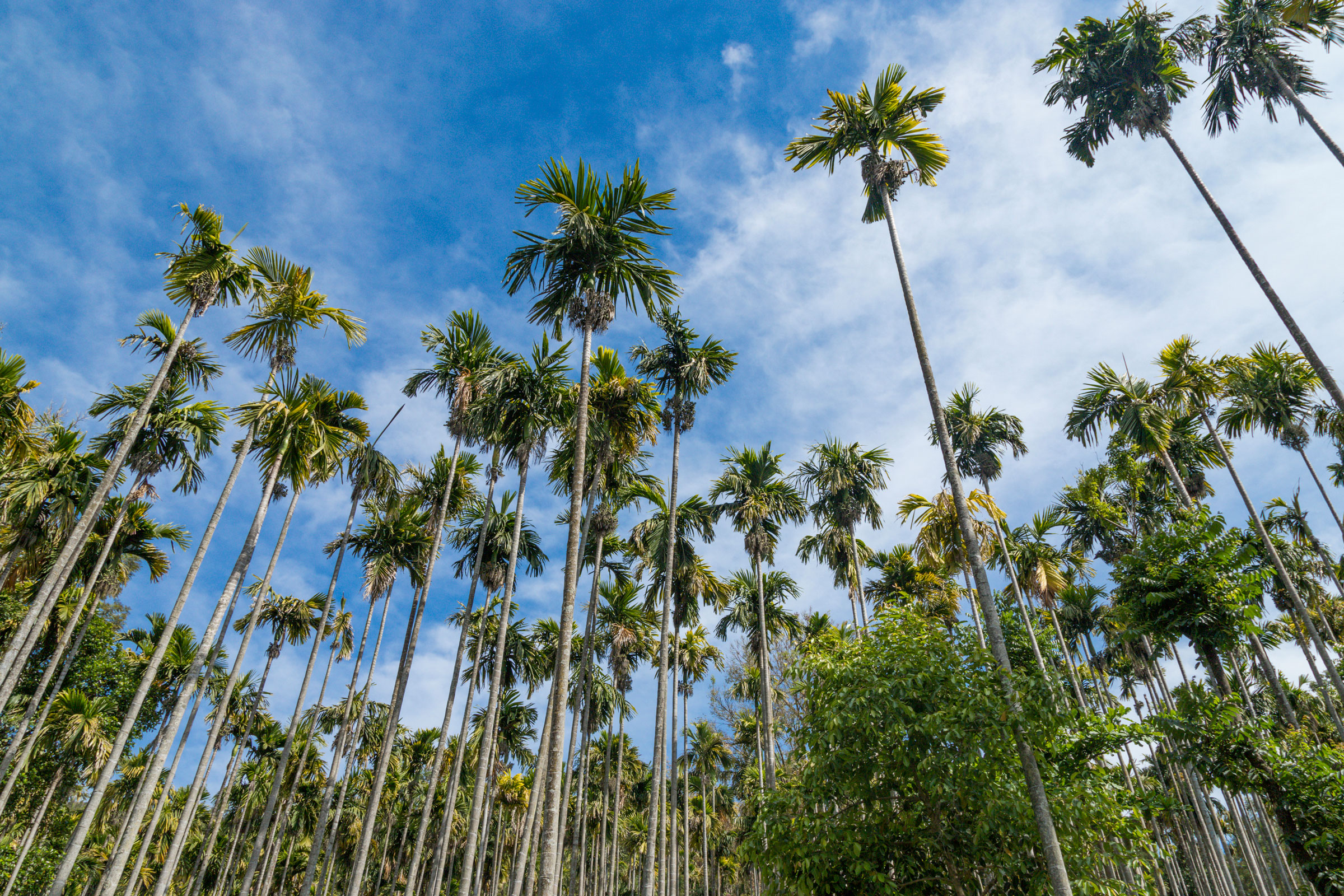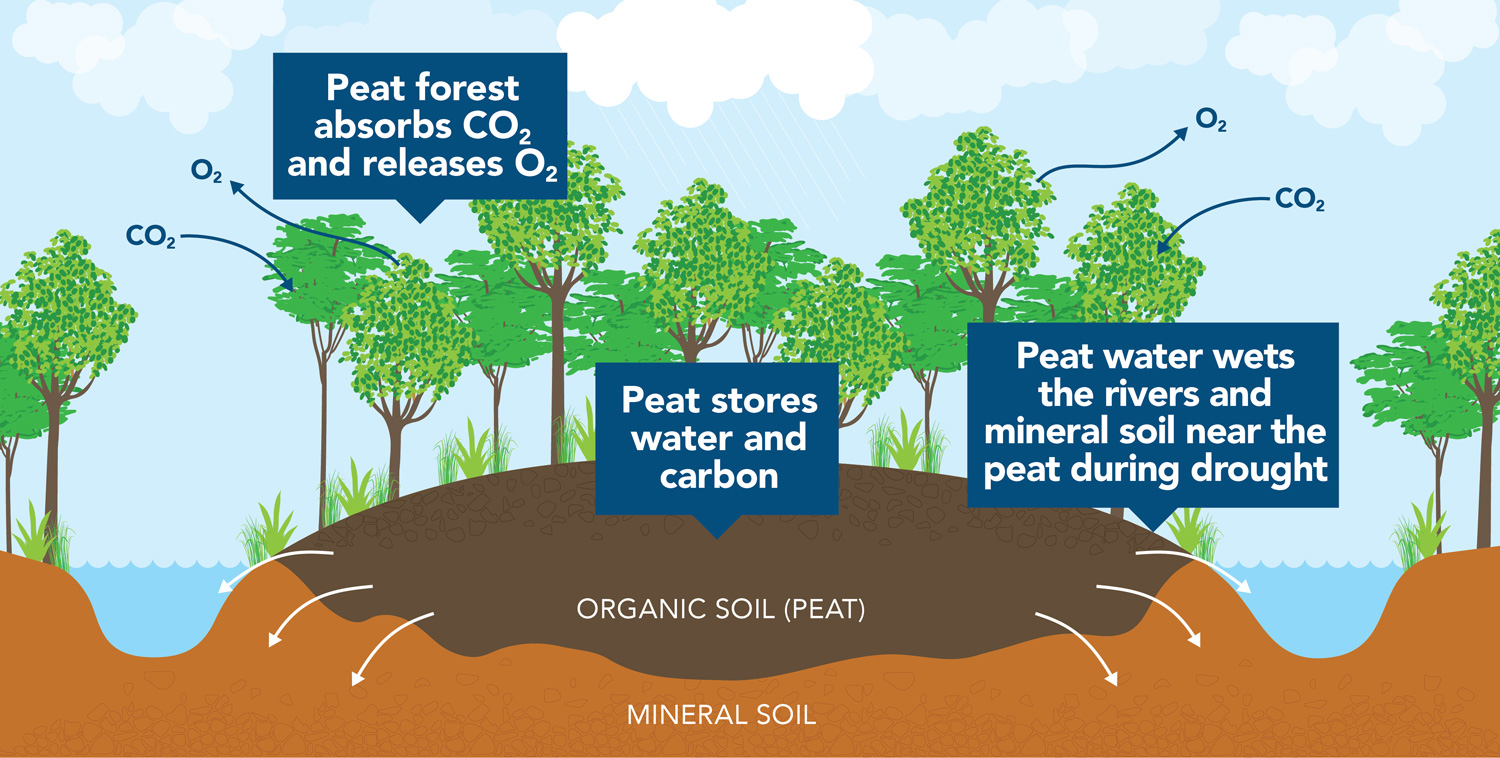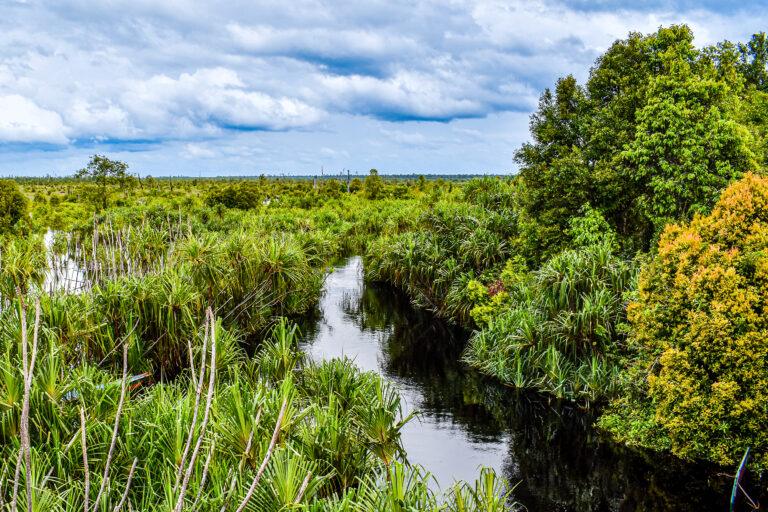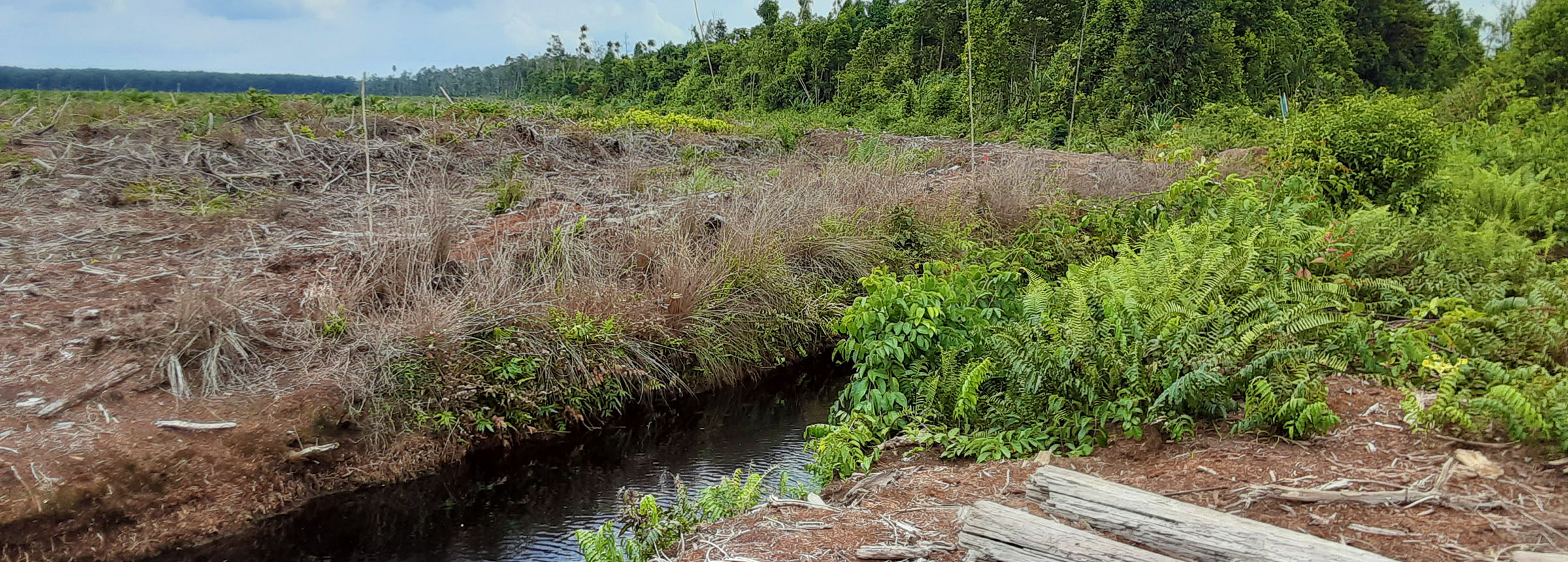
The Climate Q&A… with Krysla Lima: A transformational shift in community-based conservation and management of peatlands
Krysla Lima, senior specialist with Winrock International’s Ecosystem Services team, is a natural resources and climate-smart agriculture specialist focusing on improving economic and environmental outcomes through innovative, market-based approaches and evidence-based policy and program implementation. With over 10 years of experience in sustainable agriculture and climate change mitigation program implementation in Asia, Africa and Latin America, she has led successful projects by building meaningful partnerships among various stakeholder groups and leveraging Indigenous knowledge into program design.
Winrock International has worked extensively with communities, government and other local partners in Indonesia for more than a decade to help prevent degradation and facilitate sustainable, community-led management of the sprawling archipelago’s carbon-rich peatlands. The Southeast Asian nation between the Indian and Pacific oceans comprises thousands of islands and is home to some of the world’s most extensive tropical peatlands, which trap and hold vast volumes of carbon inside their spongy recesses. Yet rapid conversion of Indonesian peatlands for other uses, including farmland and forestry, has led to destructive wildfires and surging greenhouse gas emissions in recent decades.
One Winrock-led project funded by the Swiss-based Good Energies Foundation is working in a phased approach with community partners in the Siak district of Riau province to help effect a transformational shift in peatlands management and conservation. Driven by private sector demand, the project team is coordinating with local government, communities and farmers who live and work in or near the peatland areas to implement the newly developed Green Siak Policy.
The Green Siak Policy, or Siak Hijau, aims to balance economic needs and environmental sustainability in Riau. Introduced in 2018 and expanded in 2022, it provides a guideline for all stakeholders, including the government, NGOs, communities and private sectors, to work together to sustainability manage natural resources for the benefit of the community. Winrock’s project, called Advancing Public and Private Sector Partnerships toward Restoration and Conservation of Peatlands in Indonesia, is in its third phase, and is currently focusing on introducing and promoting peatland-friendly agricultural practices and training for farmers. The project uses a three-pronged approach that includes local community capacity building, government engagement and private sector development rooted in robust government policy.
With the project set to wind down in early 2025, Krysla Lima, senior specialist with Winrock’s Ecosystem Services team, answered questions and offered some takeaways on the work conducted so far.
Winrock has worked closely with private sector partners in Indonesia under this project to develop three peatland and forest-friendly community-based village enterprises. How do these enterprises function, and can they ultimately help reduce GHG emissions?
Winrock has worked under the Good Energies Foundation-funded project to advance public and private sector partnerships towards restoration and conservation of peatlands in Indonesia.
A key project objective is to collectively support and increase investment appeal within the Siak landscape and further the larger implementation of sustainable peatland and mangrove-friendly business models. Paludiculture cropping systems including sago, pineapple, areca nut and eucalyptus were chosen as commodities to focus on and improve access to inputs through training centers and the community-based village enterprises. Sago palm is a hardy, tropical plant known for its starchy pith, which is a vital food source in parts of Southeast Asia and the Pacific, providing a key staple carbohydrate.
Paludiculture is productive land use of wet and rewetted peatlands that preserves the peat soil and thereby minimizes CO2 emissions and subsidence. This agricultural practice involves cultivating crops on wet, waterlogged or peatland areas without draining the land. The term comes from the Latin palus, meaning swamp. It’s a sustainable approach that aims to maintain the natural hydrology of peatlands while allowing for sustainable production of appropriate commodities. Paludiculture also helps preserve the carbon storage capacity of peatlands, preventing the release of GHGs that would occur if the land were drained for conventional agriculture.

Training centers, called Centers of Excellence, were used to test out the process the commodities and various products that could be derived and sold in the local and national markets. Developing alternative livelihood activities to the production of palm oil, which dominates the landscape, is aimed at boosting commitments from local private sector partners and to support market access overall. Throughout phase three of the Good Energies project, Winrock implemented two paludi-cropping business models for sago and pineapple. We also engaged private sector partners from the Consumer Goods Forum, which mobilized funding to support the development of the village enterprises.
Winrock also facilitated a social forestry program for forest honey and provided technical training to nine villages to improve the capacity of the village enterprise members. This supported the registration of enterprises with the relevant government agencies and provided initial operational support for startup. To date, 1,000-plus hectares of community-based pineapple plantations in Siak are now under improved paludiculture systems.
The Centers of Excellence, established to support paludiculture commodities, have continued to engage with government partners to integrate Green District policy into regional action plans. How has this benefited communities in Siak?
The Centers of Excellence for sago and pineapple provide local communities with a space to explore the paludiculture systems that support these commodities, as well as various agricultural and maintenance systems to improve yields and maintain the groundwater levels of the peatland.
The centers also created shared community spaces to hold meetings, share ideas, advance enterprise agenda and hold trainings to support the village enterprises. The centers have become known as research hubs, enabling community members to explore producing various value-added commodities that could be derived from their sago and pineapple harvests, such as dried pineapple and sago noodles. This is exactly the kind of enterprising, community-based experimentation and innovation that we hoped the Centers of Excellence would foster.
What’s the most important takeaway on the carbon emissions baseline calculation activity? What is the plan to build out the baseline calculation further for locally-led development?
In relation to goals set in establishing supportive climate change policy, Winrock successfully supported the Ministry of Home Affairs in revising the information system for the regional government to include carbon emissions issues. In line with providing technical training and establishing a carbon emissions baseline for the Riau region, the government of Indonesia can finalize regulations using this critical information to provide guidance for all other districts to establish emissions baselines.
This builds a bridge between the national climate change strategy and local government implementation of that strategy and provides a clear pathway for local and regional governments to adhere to national policies that are practical and realistic. The results of the carbon emissions baseline act as key inputs for the regional action plans that are being developed across the country.
In addition to these achievements, Winrock provided training at the provincial level, in collaboration with Riau University and the Regional Office (known as Bappendalitbang), in calculating the baseline carbon emissions for Riau province’s Forest and Other Land Use sector. (“Agriculture, Forestry, and Other Land Uses” is a term that refers to human use of and influence on land areas; in climate science and policy, the AFOLU sector is particularly scrutinized for its role in the global greenhouse gas balance.)
This work provided trainees with the skills and knowledge to carry out this calculation in future instances when more accurate data is available. Trainees included all levels of government technical staff, and the trainers were our Winrock team of local experts based in Indonesia, including Arif Budiman, Haris Iskandar, Santo Elang, Indira Nurtanti, Ravita Safitra, and others.
Combined with other, already completed projects in Indonesia, the Winrock team is very pleased to see the increased integration of community-based climate adaptation and mitigation actions in development plans and policy in alignment with efforts to protect and improve livelihoods. Continued peatlands restoration efforts will require further deep collaboration between stakeholders to explore and expand paludiculture, combined with ongoing conservation efforts supported by strong technical approaches and policy.
To read about Winrock’s related work on peatlands and climate in Indonesia, please check out these fascinating pieces written by my Winrock colleagues: The Climate Q&A with Arif Budiman, forest carbon and peatlands restoration expert and Indonesia Country Director Indira Nurtanti: Fostering partnerships and community action to protect carbon-rich peatlands.
Related Projects

Advancing Public and Private Sector Partnerships toward Restoration and Conservation of Peatlands in Indonesia
This third phase of the Good Energies’ project seeks to facilitate a transformational shift in Indonesia’s peatland management and conservation. Driven by private sector demand, this project coordinates with the government of Riau and Siak, along with local communities and farmers who live and work in the peatland to implement the newly developed Green Siak […]
Enhancing Capacity to Reduce GHG Emissions from Peatlands and Palm Oil Production within a Jurisdictional Framework
The demand for palm oil has provided vital economic opportunities to many Indonesians. At the same time, the conversion of forests and drainage of peatland to create palm oil plantations is a leading source of Indonesia’s greenhouse gas emissions. Winrock has designed two scalable and replicable pilot projects that demonstrate the feasibility of improving the […]
